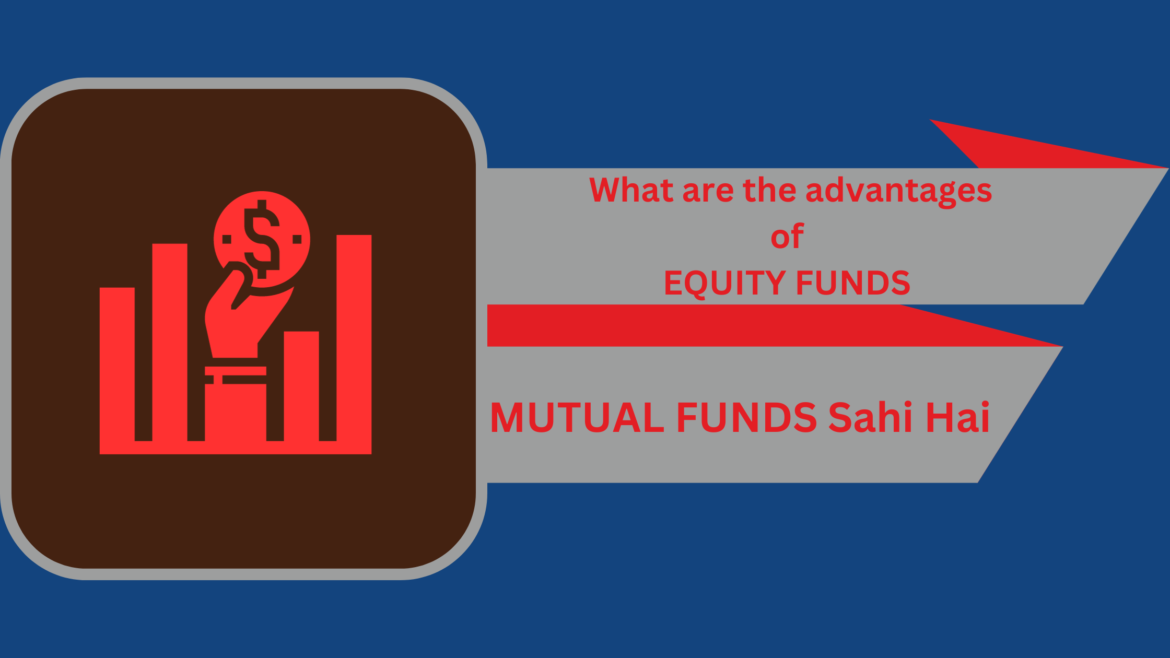Equity funds, also known as stock funds, pool money from multiple investors to invest in a diversified portfolio of stocks or equity-related instruments. There are several advantages to investing in equity funds. The advantages of Equity Funds are many but we should consider risks too..
1)Diversification: Equity funds invest in a diversified portfolio of stocks across various sectors and industries. This diversification helps spread risk and reduces the impact of adverse movements in any single stock.
2)Professional Management: Equity funds are managed by experienced fund managers who conduct in-depth research and analysis to make investment decisions. Investors benefit from the expertise and time devoted by these professionals to manage the fund effectively.
3)Liquidity: Equity funds are generally open-ended, allowing investors to buy or sell units at the current net asset value (NAV) on any business day. As a result of this liquidity, investors have an easy time entering or exiting the market.
4)Accessibility: Equity funds provide an opportunity for small investors to participate in the stock market with relatively small amounts of money. The minimum investment amounts are usually quite reasonable.
5)Affordable Investment: Through systematic investment plans (SIPs), investors can start investing in equity funds with small, periodic contributions. This promotes regular savings and wealth creation over time.
6)Potential for High Returns: Historically, equity investments have the potential to deliver higher returns over the long term compared to many other investment options. While returns are not guaranteed and the market can be volatile, long-term investments can potentially generate significant wealth.
7)Tax Benefits: Long-term capital gains (held for more than one year) from equity funds are currently taxed at a lower rate compared to short-term capital gains. Additionally, equity funds are exempt from the dividend distribution tax (DDT) since the Union Budget 2020.
8)Flexibility in Investment Style: Equity funds come in various categories, such as large-cap, mid-cap, small-cap, value, growth, sector-specific, and thematic funds. Investors can choose funds based on their risk tolerance, investment horizon, and financial goals.
9)Regular Reporting and Updates: Fund houses provide regular updates and reports to investors regarding the fund’s performance, holdings, and market outlook. Transparency helps investors keep track of their investments.
10)Long-Term Wealth Creation: Investing in equity funds with a long-term perspective can help in building wealth over time, especially when investments are aligned with a well-defined financial plan and investment strategy.
It’s important to note that while equity funds offer the potential for Higher Returns, they also involve market risk. Investors should carefully assess their risk tolerance, and financial goals, and consult with a financial advisor to determine if equity funds are suitable for their investment portfolio.



